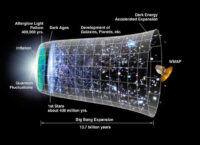
The Industrial Revolution is often mistakenly cited as the cause of the loss of human labor, but to the contrary, the engine of global capitalism fueled by the Industrial Revolution would never have developed without the hands of human labor.
Efficient and highly productive machine technology required massive numbers of people in equally large factories. Though machines reduced the need for many repetitive tasks formerly requiring human hands, those same machines required new human labor to cope with the increased output the factories produced. Sadly, jobs requiring craftsmanship were eliminated in favor of jobs requiring either “management” or little in the way of skills.
Capitalism is predicated on making goods or offering services at a price lower than their cost of provision. In most industry, employees are highest cost, and until recently have proven indispensable to the manufacturing process. It is for this reason that companies like Foxconn, manufacturer of iPhones in China, employs 350,000 workers in its city-sized factories. Similarly, the weaving and garment industries employ millions of workers, despite the efficiency of automated looms and equipment.
Factory jobs provide income, but historically have exploited workers through fear and coercion, often to the point of oppression. Capitalism does not foster workplace democracy, which is why the union movement of the early 20th century arose. Issues of safety, health, and fair worker income have been, and remain significant. In its search for lower-cost labor, American capitalism has turned to automation or moved factories abroad where labor costs and standards of living are lower.
The world is now entering the beginning phases of a new labor-saving era, the era of Artificial Intelligence. The combination of vastly improved speed of calculation with programming which mimics natural human language, visual and physical acuity – in short, the robotic age – is looming. Even the most menial jobs that remain reserved for human hands, like picking and packing orders or sweeping floors, will soon be gone.
The hallmark of industrial capitalism is efficiency, and humans are by their nature inefficient. People get sick, injured, have babies, need vacations and eat lunch. In other words, people are human. Industrial capitalism has put up with this inconvenient truth only because it has had no choice; going forward, that will not be the case as it dehumanizes humanity.
Our civilization has mechanized the most labor-intensive occupations; farming, weaving and even digging holes in the ground by hand with a shovel. As robotic intelligence grows, it will invade everything; help desks, language translation, identification of faces, policing and, of course, warfare. Today’s “smart” bombs require human intervention; the “smart” bombs of tomorrow will not suffer that inconvenience.
None less than Stephen Hawking, the Nobel-winning theoretical physicist, has warned of the dangers of Artificial Intelligence. His concerns include scenarios of intelligent machines turning against their creators; we’ll see. A more pragmatic question is: if jobs continue to disappear, what happens to human society? As people are replaced by robots, what will people do?
Capitalism will not provide the answer to those questions. If the price of using intelligent robots “pencils out” capitalists will use them. But where will the profits come from if there are no workers making pay to buy the stuff capitalism creates? The implications for the future are radical. If there are no consumers and no profit, capitalism collapses.
Maybe having robots as rulers won’t be so bad.





Be First to Comment